
World
17:20, 16-Jan-2019
Is Belgium's halal, kosher slaughter ban an attack on religious freedom?
Updated
19:46, 17-Jan-2019
By Abhishek G Bhaya
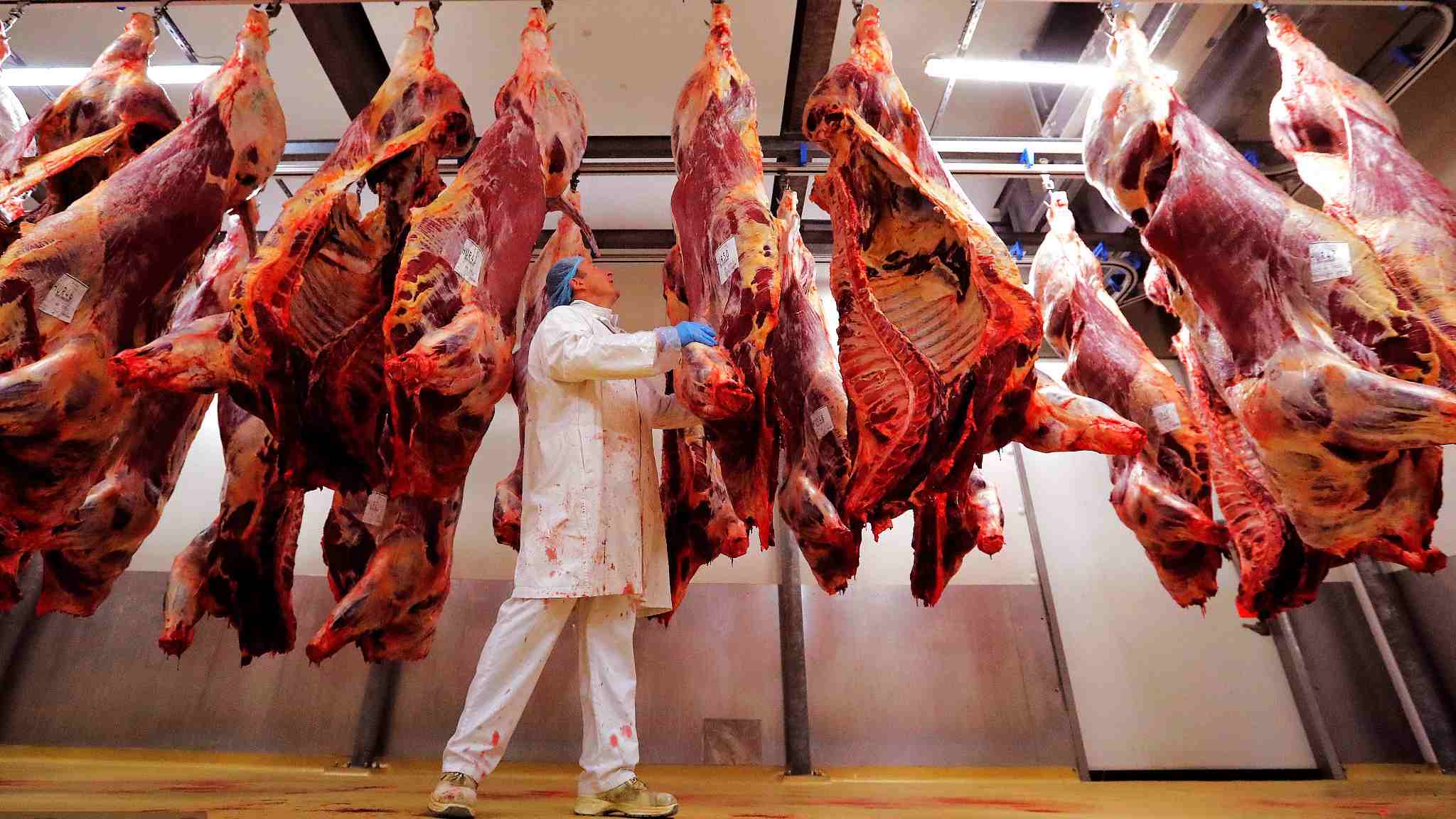
A ban on "halal" and "kosher" way of slaughtering animals in Belgium's northern region of Flanders, which went into effect from January 1, has brought to the forefront a clash between the proponents of animal welfare and religious freedom that is seething across Europe amid concerns of Islamophobia and anti-Semitism.
With the southern region of Wallonia set to impose a similar prohibition in August, the tiny Brussels Capital-Region will soon be the only place in Belgium where "halal" and "kosher" slaughtering would remain legal. This has raised an alarm among the country's Muslim and Jewish religious minorities, who have challenged the move at Belgium's Constitutional Court.
Although a similar ban exists in five other European countries – Sweden, Norway, Iceland, Denmark, and Slovenia – Belgium is the first country with a substantial Jewish and Muslim population to do so. There are about 500,000 Muslims in Belgium with a substantial population living in capital Brussels, while Flanders is home to most Belgian Jews who number around 35,000 in the country of 11 million people.
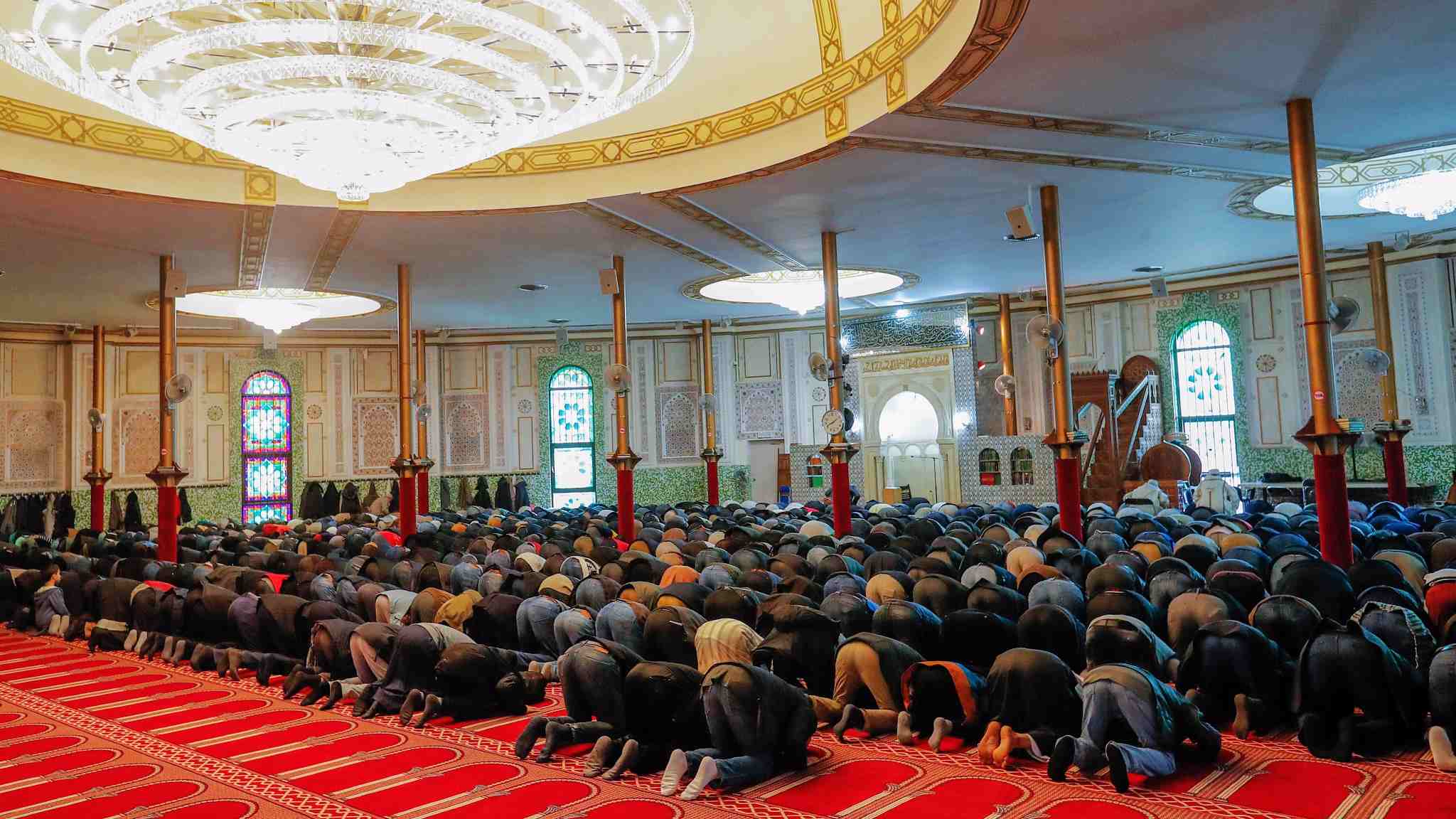
Muslims pray at the Grand Mosque in Brussels, Belgium, January 19, 2018. /VCG Photo
Muslims pray at the Grand Mosque in Brussels, Belgium, January 19, 2018. /VCG Photo
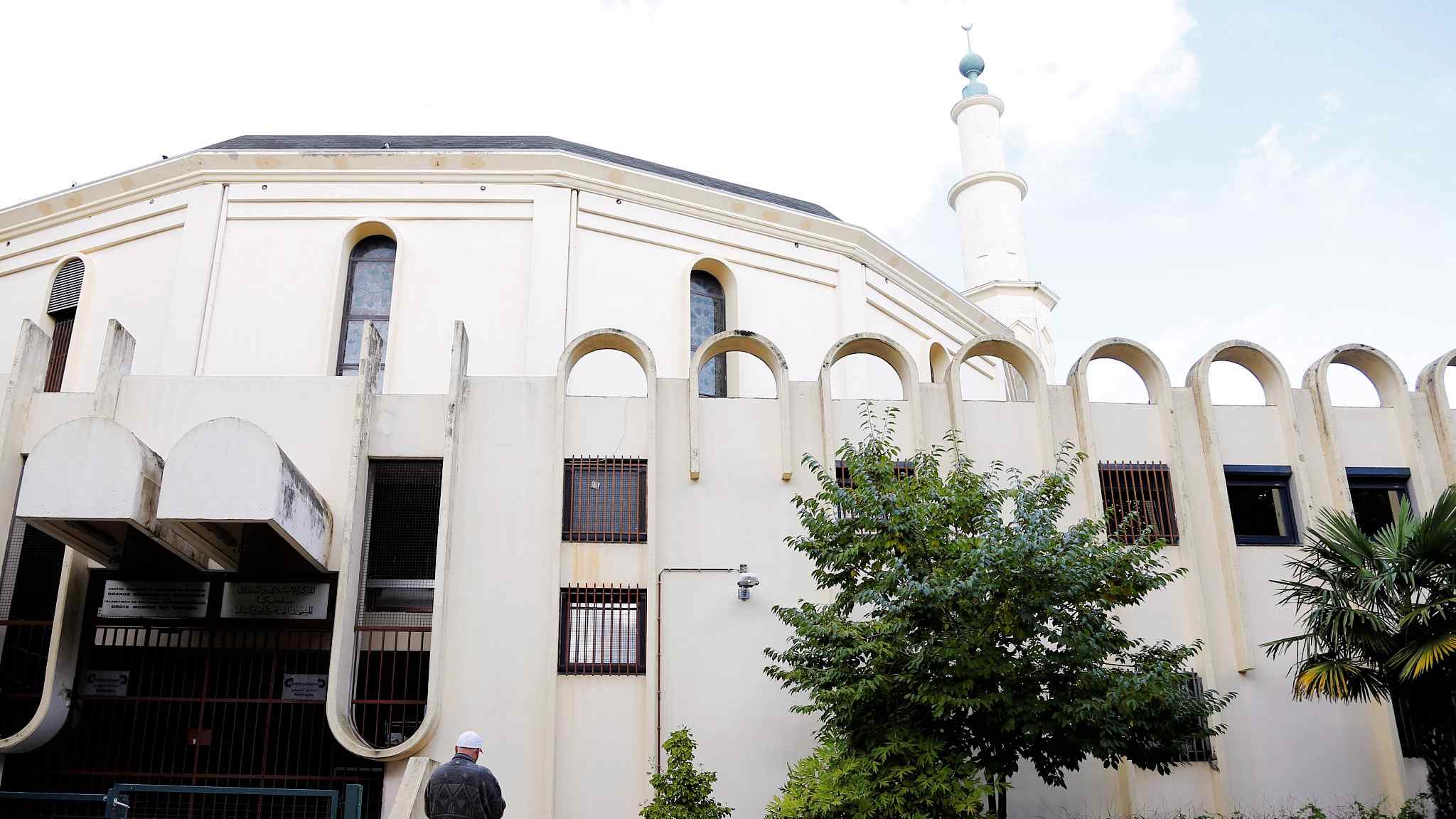
The Grand Mosque in Brussels, Belgium, October 3, 2017. /VCG Photo
The Grand Mosque in Brussels, Belgium, October 3, 2017. /VCG Photo
The Council of Europe's Convention for the Protection of Animals for Slaughter and the European Union's Council Regulation state that animals should be stunned before they are slaughtered. However, both the directives also provide that member states may allow an exemption to allow for religious or ritual slaughter.
Muslim halal and Jewish kosher practices require that the animal is in good health before it is slaughtered by a single slit in the throat, ruling out stunning it first. Advocates of the religious slaughtering say rituals were developed over centuries partly with an intent to reduce the animal's suffering. They also say the process ensures that the animal loses consciousness in seconds, with many saying it may cause lesser suffering than other methods.
Most countries and the EU allow religious exceptions, but in countries such as the Netherlands, and Germany – the exceptions are very narrow. Belgium's new law, however, makes stunning absolutely compulsory without any exception, effectively prohibiting ritual slaughtering.
Muslim and Jewish organizations have jointly opposed the ban as a violation of religious freedom. The Coordinating Council of Islamic Institutions along with the Belgian Federation of Jewish Organizations, the European Jewish Congress and the World Jewish Congress, have filed lawsuits in Belgium's Constitutional Court, with a hope that the top court may still lift the ban when it hears the arguments later this year.
The move, however, has been welcomed by animal rights activists. "They [Muslims and Jews] want to keep living in the Middle Ages and continue to slaughter without stunning – as the technique didn't yet exist back then – without having to answer to the law. Well, I'm sorry, in Belgium, the law is above religion and that will stay like that,” Ann De Greef, director of Global Action in the Interest of Animals, was quoted as saying in various media reports.
Bigotry in the garb or animal welfare?
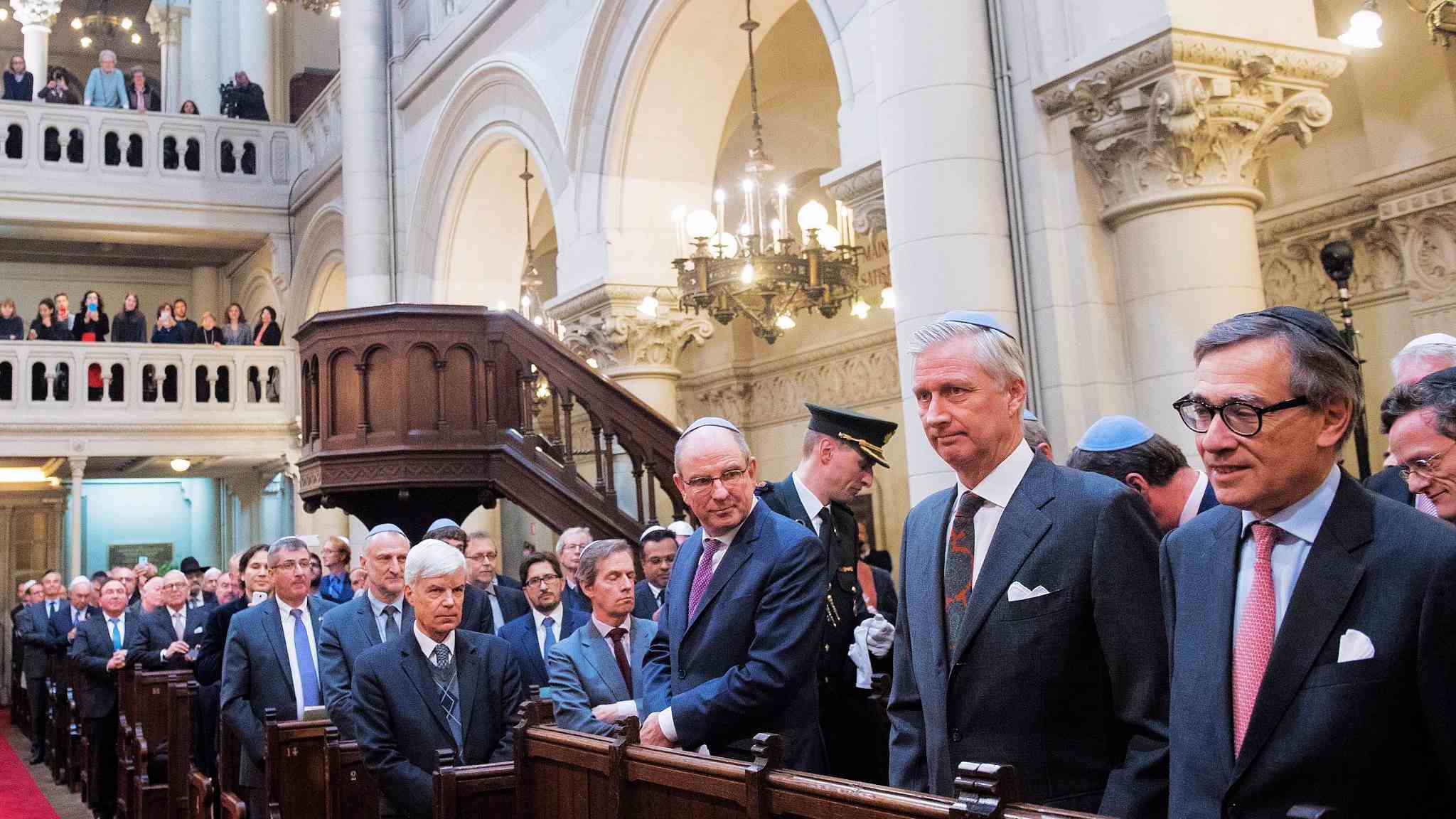
King Philippe of Belgium (2nd R) attends a ceremony to mark the 140th anniversary of the Grand Synagogue in Brussels, Belgium, November 26, 2018. /VCG Photo
King Philippe of Belgium (2nd R) attends a ceremony to mark the 140th anniversary of the Grand Synagogue in Brussels, Belgium, November 26, 2018. /VCG Photo
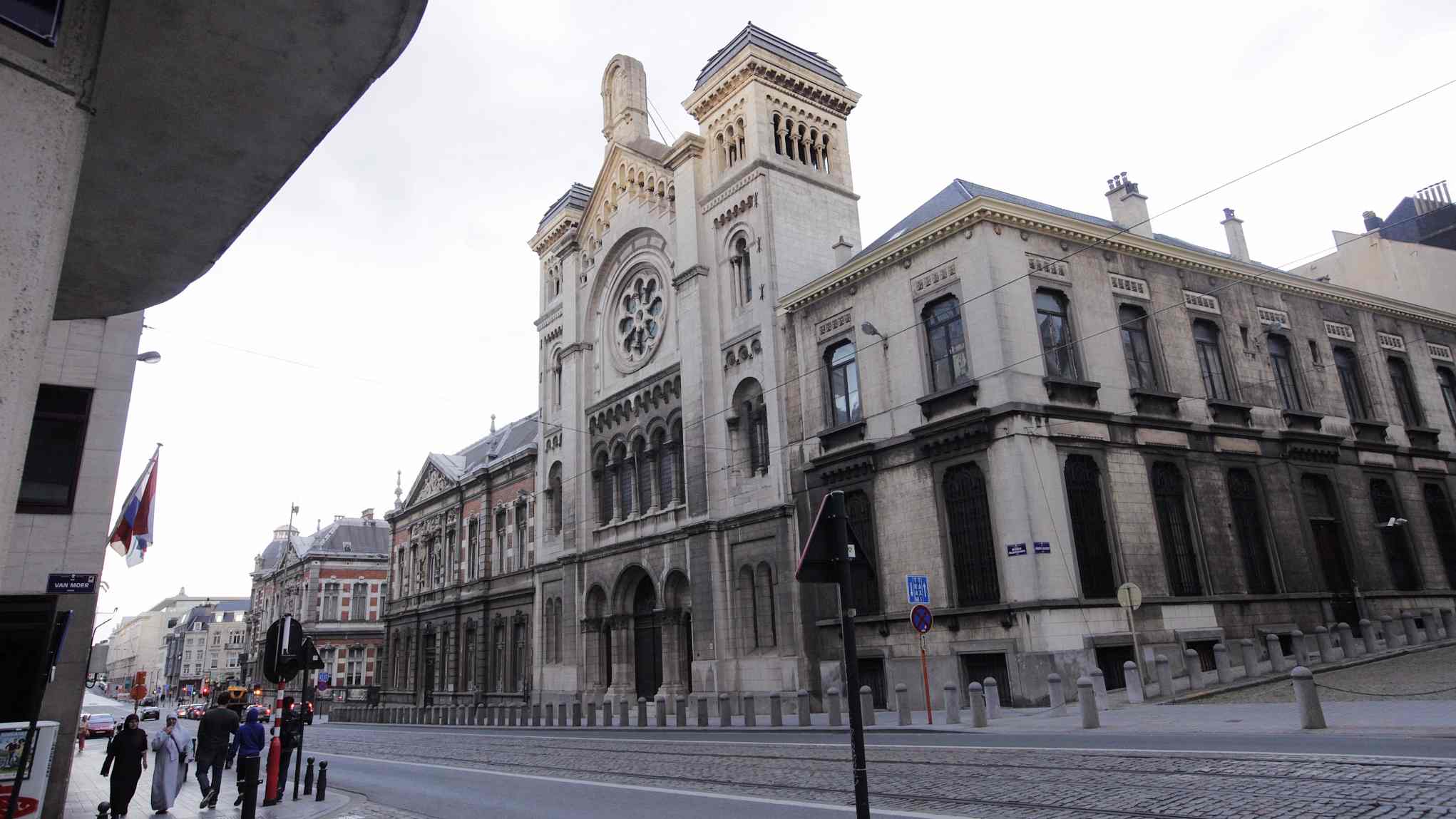
The Jewish Museum in Brussels, Belgium, May 24, 2014. /VCG Photo
The Jewish Museum in Brussels, Belgium, May 24, 2014. /VCG Photo
The Belgian move has brought to the forefront a clash between the proponents of animal welfare and religious freedom that is seething across Europe amid concerns of Islamophobia and anti-Semitism.
Stating that "the principle of religious freedom and the viability of Jewish communities in Europe are threatened by such moves," the World Jewish Congress (WJC) in a statement last week said: "The ban marks the latest in a series of measures which restrict Jewish religious practices in some European countries and this is a very worrying trend.”
Spearheaded by animal rights activists, who are seeking a more painless way to slaughter animals for meat, the ban has got tremendous support from the far-right nationalists, at the same time triggering fears among religious minorities that they are being targeted by religious bigots under the garb of animal welfare.
The new law “definitely brings to mind similar situations before the Second World War, when these laws were introduced in Germany,” Belgian Rabbi Yaakov David Schmahl, from Antwerp, told Israeli Yedioth Ahronot newspaper.
Belgian Muslim community leader Saatci Bayram told The New York Times that the government indeed sought the community's advice on the ban, but chose to ignore their negative feedback. “This ban is presented as a revelation by animal rights activists, but the debate on animal welfare in Islam has been going on for 1,500 years. Our way of ritual slaughtering is painless,” he added.
Concurring with Bayram, Yaakov David Schmahl, a senior rabbi in Antwerp, told NYT: "It is impossible to know the true intentions of people. Unless people state clearly what they have in mind, but most anti-Semites don't do that.”
Europe has had a chequered history of anti-Semitism and with Islamophobia on the rise in recent times among far-right political parties as seen in their vicious campaign targeted at Muslim immigrants, a law that appears to discriminate against those religious practices are bound to be seen with suspicion by their adherents.
Price of halal, kosher meat to shoot up?

Butchers work on beef at a slaughterhouse in Brussels, Belgium, July 27, 2017. /VCG Photo
Butchers work on beef at a slaughterhouse in Brussels, Belgium, July 27, 2017. /VCG Photo
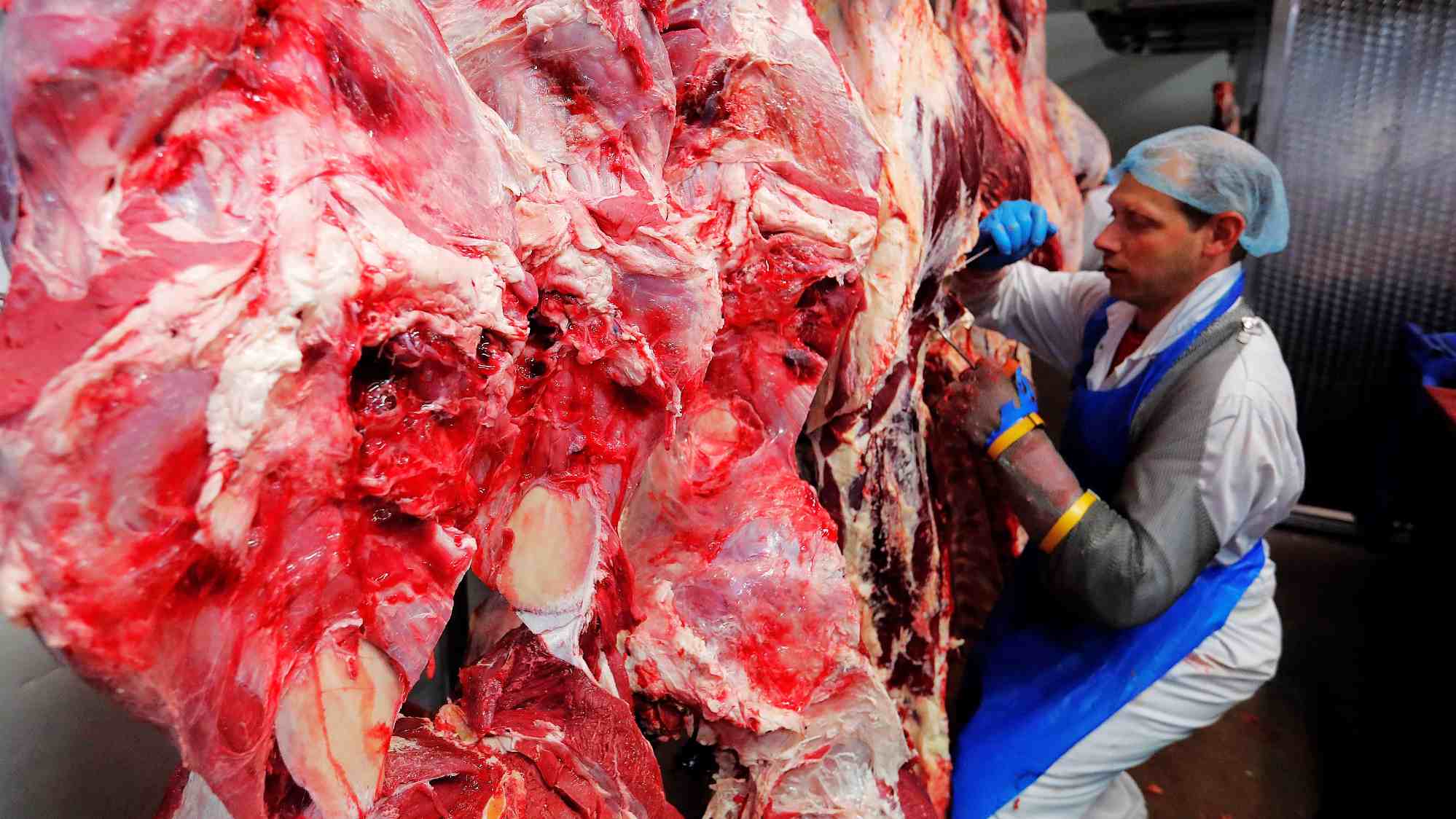
A butcher cuts beef at a slaughterhouse in Brussels, Belgium, July 27, 2017. /VCG Photo
A butcher cuts beef at a slaughterhouse in Brussels, Belgium, July 27, 2017. /VCG Photo
Meanwhile, Jewish and Muslim communities in Europe are also alarmed that the ban may lead to a rise in the cost of kosher and halal meat across the continent due to a shortage of supplies.
In Antwerp, home to Belgium's biggest and wealthiest Jewish community, the new law would see the closure of the city's main Jewish slaughterhouse that supplies kosher meat to other countries in Europe.
Belgian Jews fear that this "will mark the end of Jewish prosperity in the city – a community that was only restored in the 1960s after it was annihilated during the Holocaust," Yedioth Ahronot reported.
"Some of those who try and ban our customs are in essence trying to make Europe more uncomfortable for Jews, because the essence and centrality of our life are our ancient traditions, and if our customs are not welcome nor are our communities,” Moshe Kantor, the president of the European Jewish Congress, said in a statement.
Many Muslims expressed similar concerns. "I don't think it is anti-Semitism or anti-Muslim in essence, but it will, I think, be understood by some Muslim communities as a kind of Muslim hate or anti-Muslim sentiment,” Rasit Bal, chairman of the Council of Muslim Organizations, representing members of 450 Dutch mosques, told NYT.
Bal, however, felt the new rules would have little impact on halal meat production. "We already have huge diversity when we look to the definition of halal. So it won't affect the community life.”
Others point out that both Muslims and Jews in Belgium can still import halal and kosher meat from other countries. The freedom of movement of goods within the EU ensures that halal and kosher products can move easily from one member state to another. This, therefore, means that such products including meat would continue to be available, even in the countries or areas where halal or kosher slaughter itself is not permitted.
(Cover: Beef stored in a fridge at a slaughterhouse in Brussels, Belgium, July 27, 2017. /VCG Photo)
7971km

SITEMAP
Copyright © 2018 CGTN. Beijing ICP prepared NO.16065310-3
Copyright © 2018 CGTN. Beijing ICP prepared NO.16065310-3